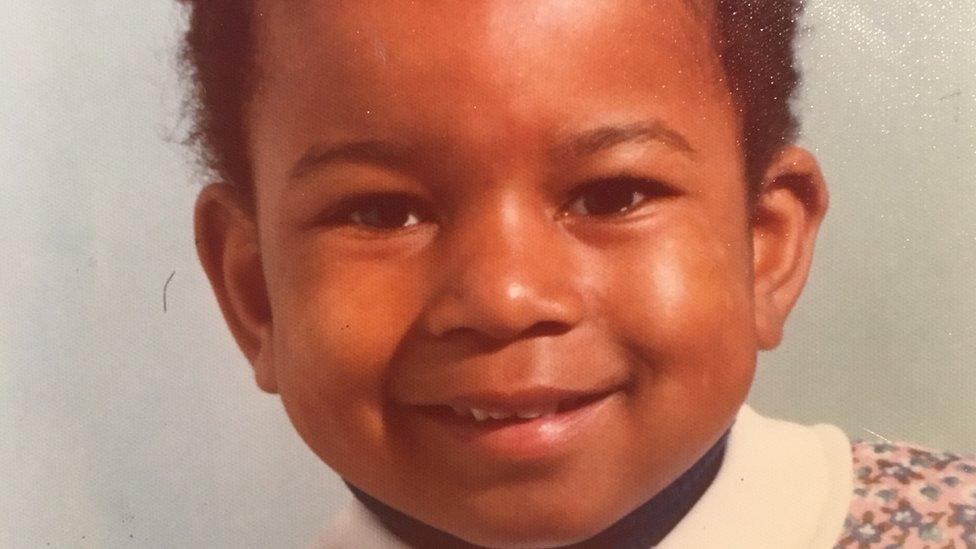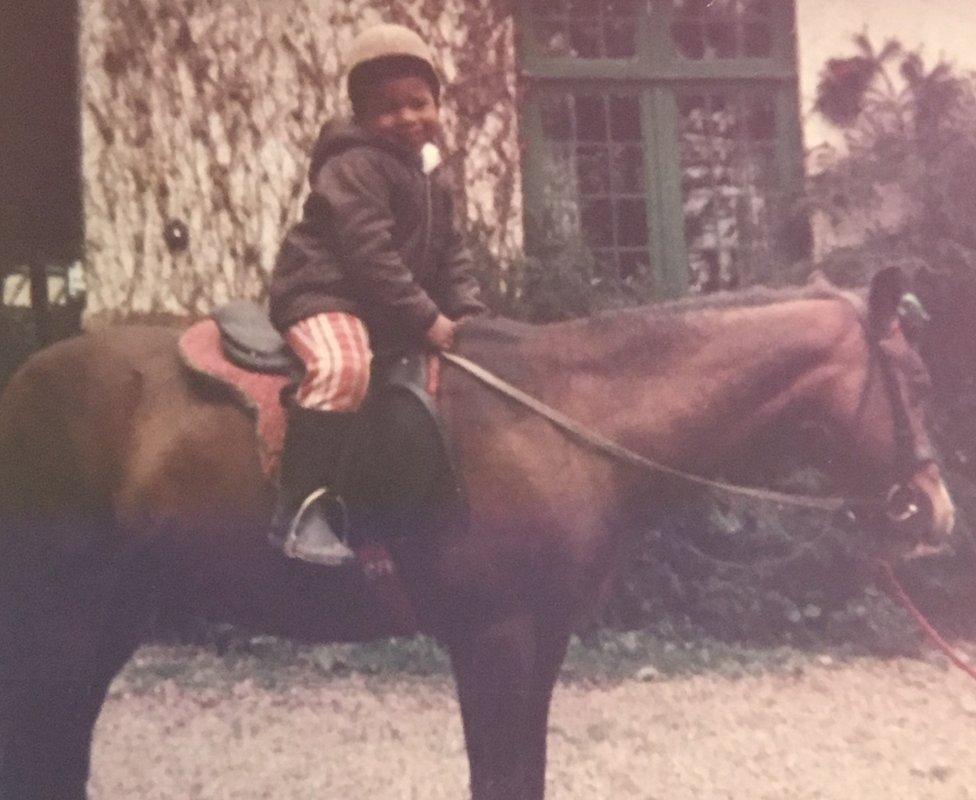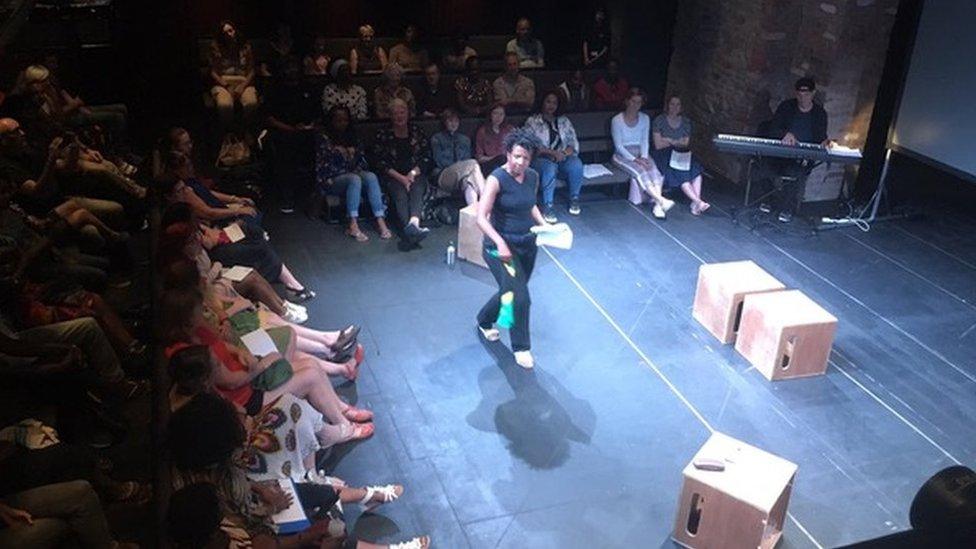Adoptee's Devon racism experiences turned into musical
- Published

Dionne Draper was adopted at three months old by a white family from Devon
A black woman adopted as a baby by a white family has turned her childhood experiences of racism into a musical.
Dionne Draper, 46, said she experienced "racial attacks, abuse and racism in the streets and social gatherings" growing up in a Devon seaside town.
Her show explores the "longing" she felt to be part of a culture, but not "knowing what that culture is".
She was adopted at three months old, from Jamaican birth parents in the 1970s.

She described her childhood as "very middle class", including horse riding and sailing
Ms Draper said her life growing up in east Devon was "very middle class", riding horses, sailing and "playing in the countryside" with white friends.
The actress and singer, who has worked with the Spice Girls and Basement Jaxx, left the county aged 18 but has returned to stage the musical in Plymouth on Saturday
Named Dawta after the Jamaican pronunciation of daughter, the show is a semi-autobiographical, one-woman show exploring being a black person raised in a predominantly white environment.
'Very identifiable'
Describing her childhood, Ms Draper said it was particularly isolating being "visible" wherever she went.
"Everyone knew me, everyone saw me, I was very identifiable.
"I wasn't able to go to a friend's birthday party because the parents didn't want me in the house because I was black.
"I'd be walking down the streets and people would be shouting out of the windows."

Ms Draper said she was popular at school, but her colour would be used against her
Ms Draper described the importance of a sense of "cultural wellbeing" for the mental health of transracial adoptees and how she hoped her work would help give a voice to people who have experienced similar cultural dislocation.
"I'm not saying that adoption or fostering shouldn't happen, but the mental outcomes of those children are really important and significant," she added.